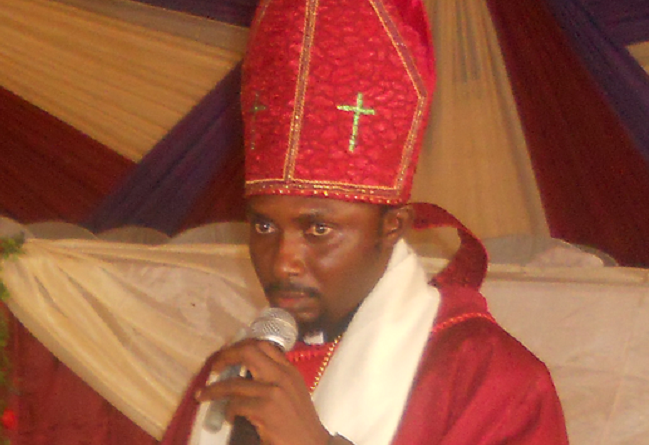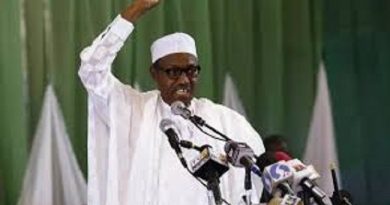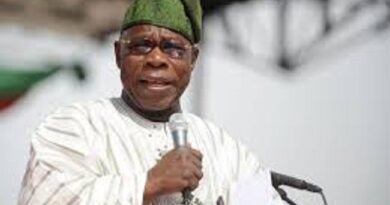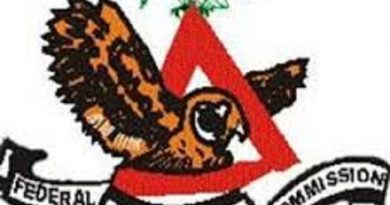Arewa: Whose North?
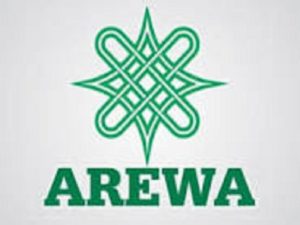
The first thing that crosses one’s mind when you come across the word “Arewa” is usually, if I am not mistaken, Arewa House in Kaduna, Arewa Consultative Forum, Arewa Media Forum, and Arewa People’s Congress and of recent the group that paid a courtesy visit to President Buhari, known as Arewa Pastors Peace Initiative Nigeria (APPIN), which Northern CAN disown and Northern Christian Elders Forum attacked.
For not mentioning the plight of Christians in the north and the Chibok girls, to also remind the President of Leah Sharibu the last captive remnant of the Dapchi girls.
What is Arewa?
Arewa is a Hausa language term for north, one of the cardinal directions. Its popular usage in contemporary Nigeria sometimes suggests a northern Nigerian regionalism or proto-nationalism.
In Nigeria, Arewa simply refers to the local term for the geopolitical area north of River Niger and River Benue that geographically split Nigeria into North, West, and East. In Niger, it has a very specific meaning. Arewa (Niger) is a small pre-colonial animist dominated state of the Dallol Maouri Valley, known for the indigenous “Maouri/Mawri” Hausa culture.
In Nigeria, Arewa Daudi is a “Local Government Area” in Kebbi State, and has been called simply “Arewa” in the past. In post-independence Nigeria, some use the word as a general term for Nigerian Hausa land; a contradiction of “Arewacin Nijeriya”(Northern Nigeria). Much of the north was once politically united in the northern region; a federal Division disbanded in 1967 and was previously home of the seven Hausa states, later the Sokoto Caliphate in the pre-colonial period and northern protectorate under British colonial rule.
It will be of interest to note that there are even smaller regionalist circles, associated with the term “Arewa Republic”, used to describe a speculative future region, entity, or state that coincide with the Pre- 1967 northern region, Nigeria.
Arewa From Lokoja Perspectives
Lokoja is a city in Nigeria. It lies at the confluence of the Niger and Benue rivers and is the Capital of Kogi state. While the Igala, Bassa Nge, Yoruba and Ebira are indigenous to the area, other ethnic groups of Nigeria, including the Igbo, Bini/Edo, Tiv and Nupe have recently established themselves.
Who Named Lokoja: The Yoruba and Oworo people believe the name comes from Ilu Oke Oja (the settlement located on the hill did not fall). The Hausa believe the name comes from Lokoja (A red Corner) and that the city was named by the Emir of Zazzau. The Nupe believe the name comes from Patti Lukongi (the hill of Doves). The Igala believe the name comes from the expression Lia Ka Je Eja (let us go and eat fish). The present modern settlement at Lokoja was established in 1957 by the British explorer William Baikie at the site of an earlier model farm constructed during the failed Niger expedition of 1841.
Lokoja was the capital of the British Northern Nigeria protectorate and the Chief of Lokoja at that time is Alhaji Muhammadu Maikarfi. Lokoja remained a convenient administrative town for the British colonial government after the amalgamation of Northern and Southern Nigeria in 1914. The first governor-general, Sir Frederick Lugard, governed the new nation of Nigeria from Lokoja.
Arewa: From Zungeru Perspectives
Zungeru is a town in Niger State, Nigeria. It was the capital of the British protectorate of northern Nigeria from 1902 until 1916. According to local oral history, “Zungeru” is a corrupted form of the word Dunguru. Tradition holds that British colonialists came upon a Gwari man playing a Dunguru (a musical instrument used by the Nupe and Gwari) in the area of what is now Zungeru. They asked him what it was called; he told them, “Dunguru”, and the corrupted form “Zungeru” became the name of the settlement.
British Forces occupied Zungeru in September 1902, which was then populated by Gwari.
Colonial administrator Frederick Lugard chose the town as the capital of northern Nigeria over Jebba and Lokoja, due to its central location. The British cleared the forest in the area and established a market, military barracks and hospital among other things.
In 1916, two years after the amalgamation of 1914, Lugard moved the north’s capital to Kaduna. The same year, the Chief of Wushishi was given the position of ruler of Zungeru. After the capital was moved to Kaduna, Zungeru was administered from Minna as part of Niger Province.
Sites in modern Zungeru includes Nnamdi Azikiwe Centre (built by Ibrahim Babangida) the market built by Lugard and Niger state Polytechnic. And the ongoing work on the proposed Hydroelectric Dam proposed to produce 700mw of electricity.
Arewa: From Kaduna Perspective
Kaduna is currently the capital of Kaduna State in north-western Nigeria. On the Kaduna River is a trade centre and a major transportation hub for the surrounding areas with its rail and road junctions. Kaduna derived its name from the Hausa word “KADA” meaning Crocodiles, (Kaduna being the plural form).
Kaduna was founded by the British in 1913 and became the capital of Nigeria’s former Northern Region in 1917. It retained this status until 1967. The First British governor of northern Nigeria, Sir Frederick Lugard, chose the present site due to its proximity to the Lagos-Kano railway.
Sir Ahmadu Bello, the premier of northern Nigeria (1954-1966) was assassinated in Kaduna on 15th January 1966, in a military coup, which contributed to the Nigerian civil war (1967-1970).
Ethnic groups in Kaduna state include Gbaggi, Adara, Hausa, Atyap- Bajju, Ham, Yoruba, Kanuri, Fulani, Nupe and Igbo.
Understanding the “Arewa” in Arewa Pastors Forum For Peace.
Is the Arewa Pastors Forum for peace restricted to the definition of Arewa by seven Hausa states that pre-date the Sokoto Caliphate in the pre-colonial era? If no, what about the definition based on the Arewa-Daudi local government area in Kebbi state? If the concept of Arewa chosen by the APFFP (AREWA PASTORS FOR PEACE) subscribes to the regional definition established in Lokoja by William Baikie and Sir Frederick Lugard and later Zungeru and finally Kaduna for railway convenience between Lagos and Kano.
Sir. Frederick Lugard’s Arewa (Northern Nigeria Protectorate) gives a richer, deeper, healthier definition of an Arewa (North). Lugard’s Arewa was not a “Hausa Fulani” North, but a region that comprises many ethnic groups, Hausa and Fulani inclusive. Arewa belongs to all of us. Christians, Muslims, and Traditionalist.
THE TASK BEFORE APFFP (AREWA PASTORS FORUM FOR PEACE)
We are once politically united Northern Region, as a federal division that was dismantled in 1967 should be the template rooted in William Baikie and Sir Lugard’s effort of siting Capital in Lokoja, Zungeru and finally Kaduna. Not forgetting the activities of Mungo Park in Jebba. When Arewa Pastors Forum For Peace continues the effort of liberating minority tribes from the shackles of the high and mighty. It will be a great cause. Arewa does not belong to Islam neither does it belong to the seven (7) Hausa states (Hausa Bakwai). Arewa does not belong to Hausa-Falani neither does it belong to the Kaduna people.
Arewa does not belong to the Elites neither does it belong to the emirates. Arewa does not belong to Caliphate neither does it belong to the Mafias.
Arewa does not belong to Arewa Consultative Forum neither does it belong to one ethnic group. Arewa includes past Capitals like Lokoja, Zungeru and Kaduna. Arewa belongs to ALL OF US, the Resources in Arewa belongs to ALL OF US.
The opportunities in Arewa belongs to ALL OF US. Arewa does not end in Kaduna; it ends beyond Lokoja and Zungeru. It is the responsibility of the Arewa Pastors Forum For Peace to Preach the total gospel for total redemption, setting the captives free. Arewa is Kwararafa and Kwararafa is Arewa. If Arewa is Lugard’s North, then it is Hausa-Bakwai’s north, then we are out.
Moving from the confluence where River Niger and Benue meets, up to the borders of Niger Republic, Chad, Cameroon and the Benin Republic, Arewa calls, Jesus calls, Isa (Peace Be Upon Him) calls.
Arewa Pastors Forum For Peace has responsibility, leadership beckons.
Duty calls. Will you let another soldier fall in the tour of duty?
About the Author: Prof. Genesis A. Dawauda is Chancellor of Unified Theological Seminary and International President/Chief Ambassador Centre for World-Rebirth Jos. He can be reached on +2348028063695 or via email: centreforworldrebirth@yahoo.com
Kindly share and like our page

